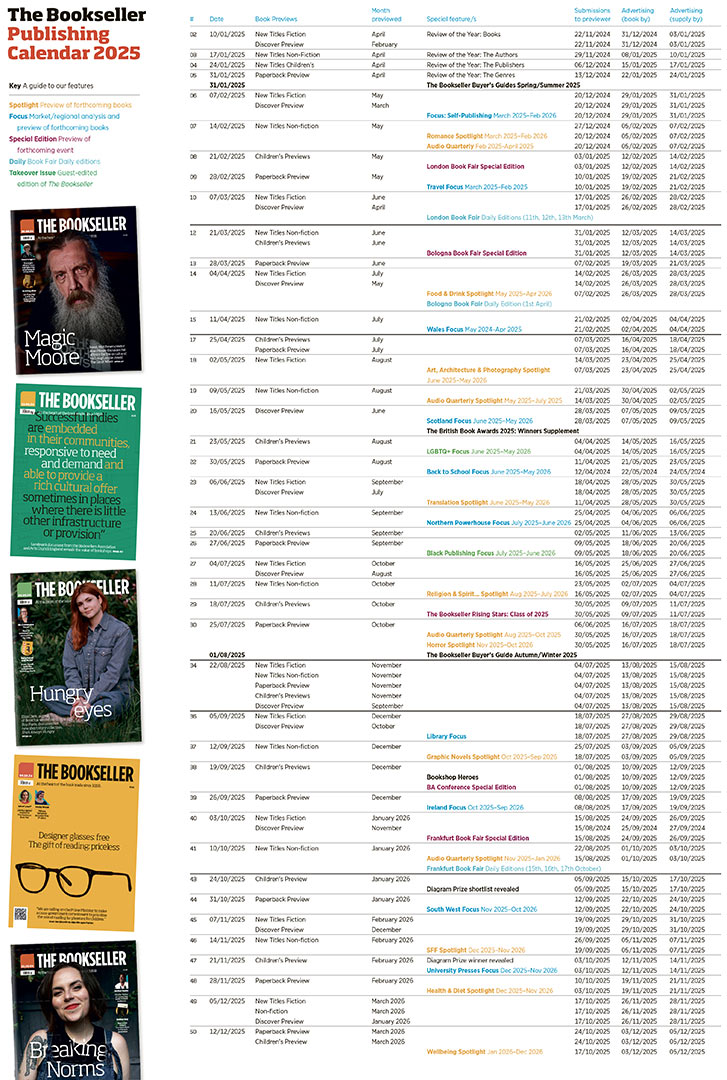You are viewing your 1 free article this month. Login to read more articles.
PRH first-half revenues at €1.5bn
Penguin Random House worldwide generated revenues of €1.5bn (£1.2bn) in the six months to June 2014, Bertelsmann has announced in its first half year results.
Bertelsmann does not break results into regions but said the publisher's global revenues were up 63% from the total of $915m (£712m) generated by Random House in the same period the year before, ahead of the merger with Penguin on 1st July 2013.
Bertelsmann said highlights for Penguin Random House in the first half of 2014 included John Green’s The Fault in Our Stars selling more than 5.7m copies worldwide between January and June, and the creation of a new corporate logo and “brand-identity system” for the company. Results were “driven by strong bestseller performances, especially from its children’s divisions worldwide”.
In the UK, Penguin Random House had 45% of the Sunday Times bestseller list, said Bertelsmann, with the company’s biggest selling title being The Fault in Our Stars, while Jeff Kinney’s Diary of a Wimpy Kid: Hard Luck was “a major success as well”.
Worldwide, Penguin Random House “invested across its divisions in extending the reach of its digital content and expanding its digital marketing, as well as introducing new web verticals and apps”.
The company expanded its e-book portfolio to more than 80,000 titles.
In a letter to staff, Penguin Random House c.e.o. Markus Dohle thanked them for their “teamwork, enthusiasm, and commitment”. He said it was the company’s children and YA “megabestsellers across our companies internationally that had the greatest impact on our top and bottom lines”. Citing a number of children’s books which had proved successful for Penguin Random House in the first half of 2014, he said: “What’s more, these stories will undoubtedly foster an ongoing love of book reading for generations to come. It is this passion for reading, and our shared goal of further nourishing it, that inspire us to do what we do each workday.”
“As we look ahead to our busiest time of year, I ask that you keep our larger purpose—the future of books and reading in our society—at the forefront of our work together,” he continued. “We achieved a solid first-half performance. Let us finish this year strongly by continuing to publish the kinds of books readers can’t put down, the ones they tell everyone they know about, the ones that will spark in young people the love of reading that we share.”
Bertelsmann as a whole posted its best half year results in seven years, partly due to the Penguin Random House merger. The company, which also owns television and magazine businesses, among others, said that revenues from continuing operations for the first half of 2014 were up 5.4% to €7.8bn (£6.2bn), up from €7.4bn (£5.8bn) in the same period in 2013.
Revenue growth “was driven, in particular by the strategic transactions of the past 18 months”, said the company, including the combination of Penguin and Random House and the acquisition of full ownership in the BMG music rights company.
Thomas Rabe, chairman and c.e.o. of Bertelsmann, said: “The first six months of 2014 went satisfactorily for Bertelsmann. The significant increase in revenues is a testament to the effectiveness of our strategy, and last year’s big investments are paying off.
“In the past few months, we have made significant progress in our four strategic directions: strengthening the core, digital transformation, expanding growth platforms, and our businesses in growth regions.
“We are well on our way to making Bertelsmann a faster-growing, more digital and more international company long-term. In the months and years ahead, we will focus on expanding our education business, which will become a third mainstay of revenues alongside media and services.”
In a video uploaded on the company site, Rabe added that in the future he saw Bertelsmann becoming a company “which will grow faster, [and] will be more digital and more international”.
Among the investments made by Bertelsmann during the first half of 2014 were the purchase of Spanish and Portuguese-language trade publisher Santillana Ediciones Generales by Penguin Random House, and the launch of a €30m technology fund in Brazil. Bertelsmann also withdrew or scaled down its declining businesses, including its club business in Germany and Spain.
Operating EBITDA for Bertelsmann was €1,015m, slightly above the €1,011m from the same period in 2013.















